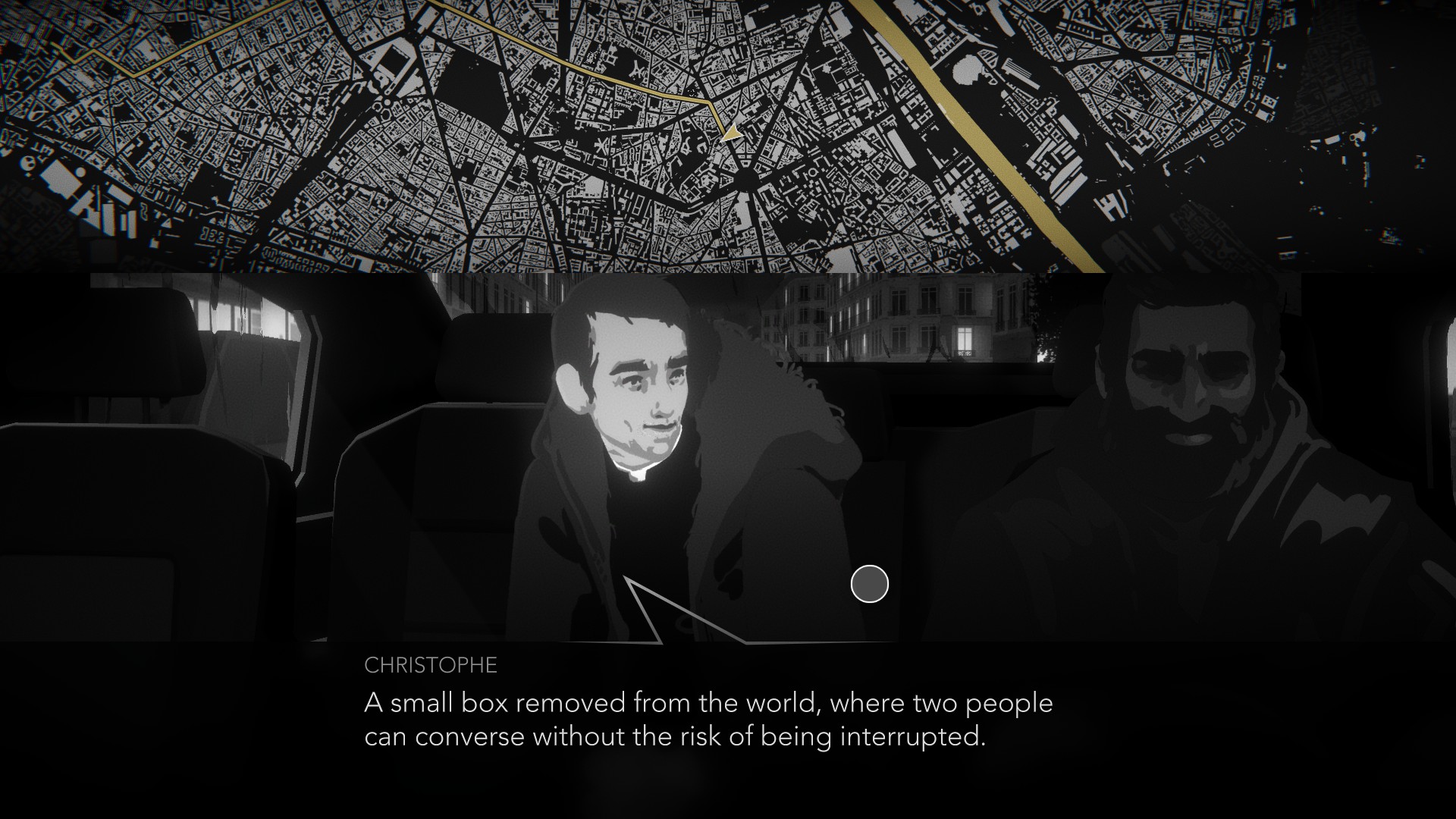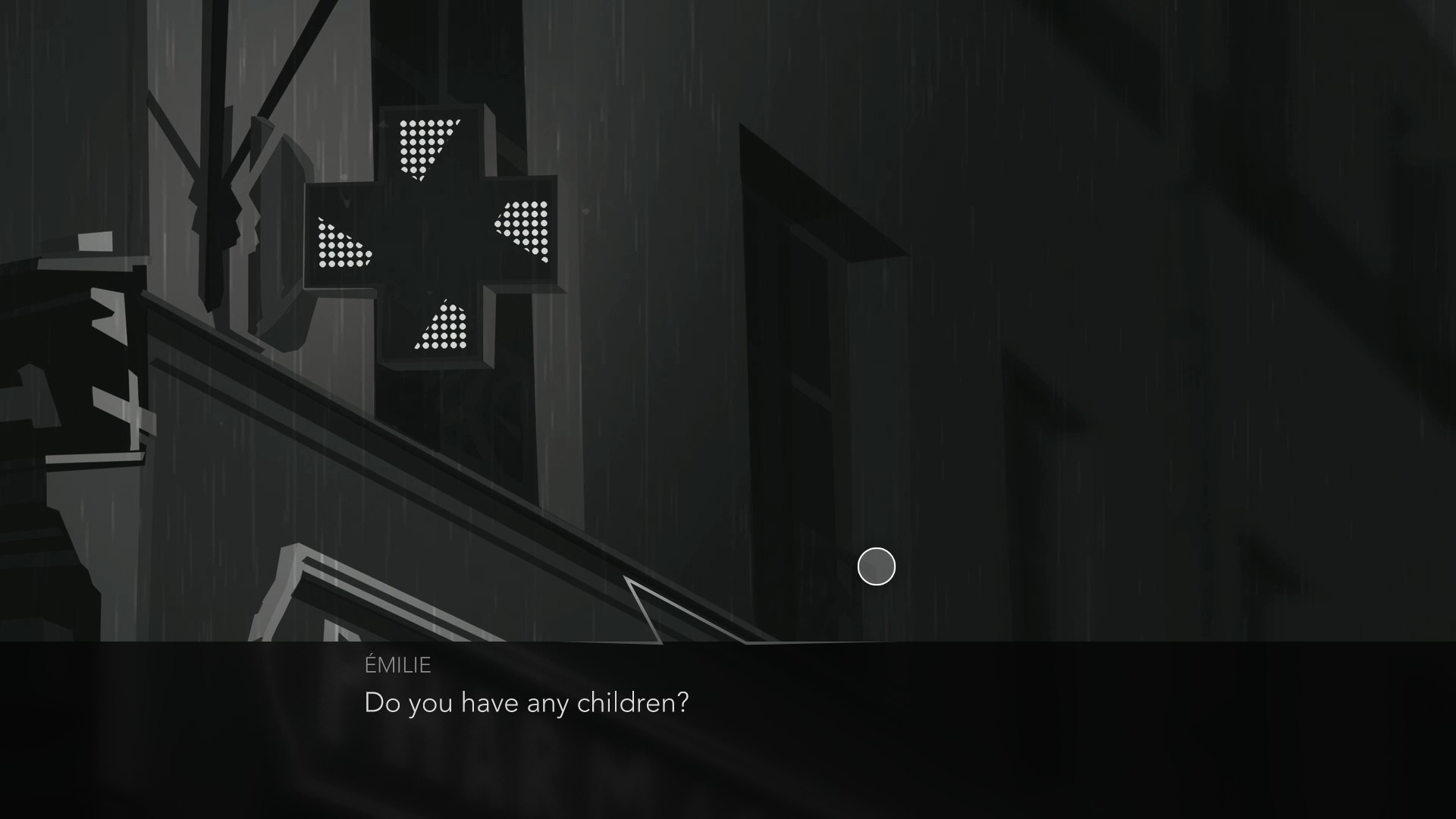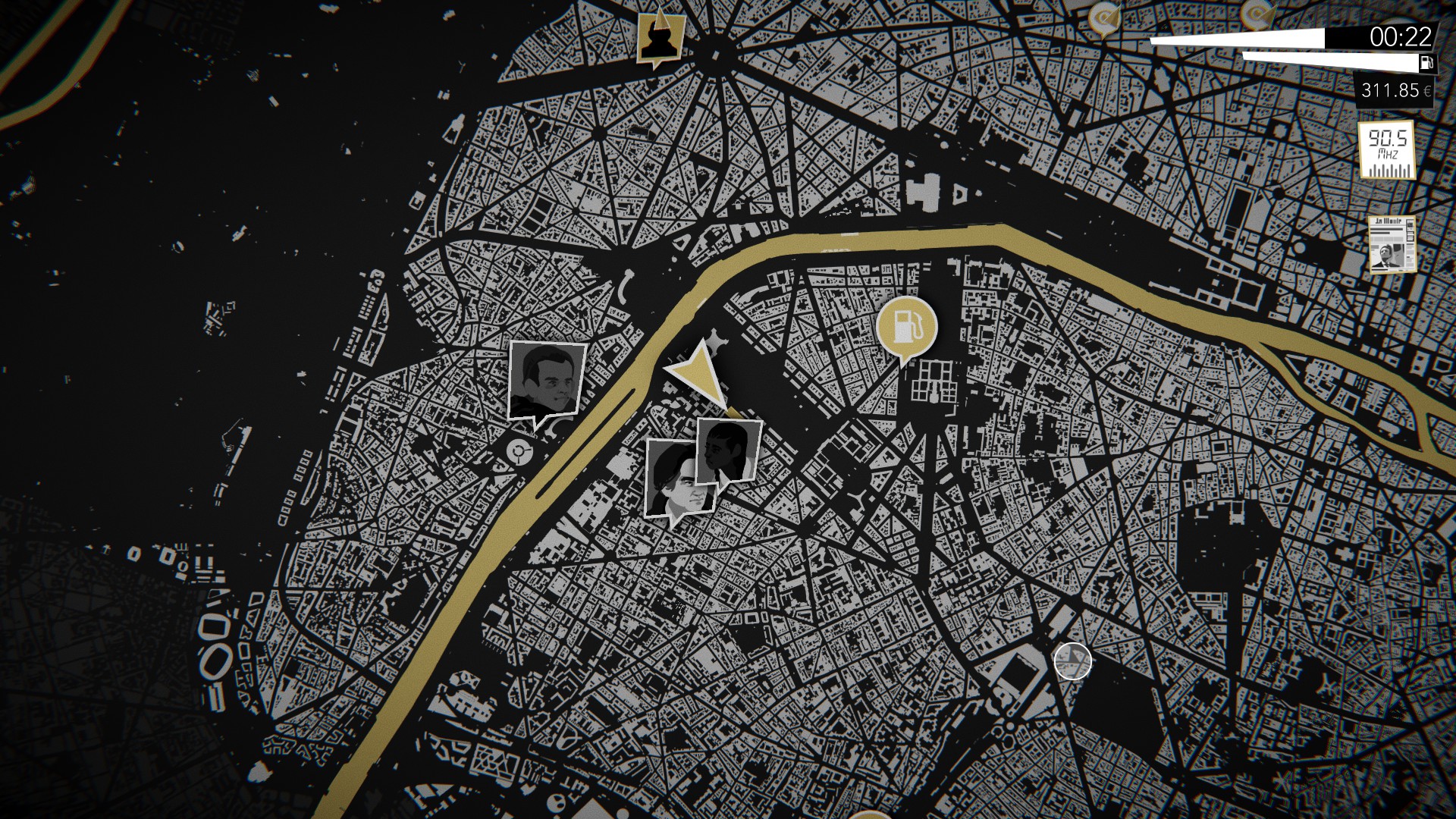It’s a cold night in Paris, but there’s no other option than to get up and start the next work shift. The clock starts ticking. You look for passengers. Lights go by, and you hear a party on the first floor of a nearby building. Quickly, work begins and the time goes by.
Thing is, you still can’t shake the fear down running your spine, the fear left from the attack. The killer is lurking out there… Somewhere…
Night Call, developed by Monkey Moon and Black Muffin and published by Raw Fury, tells the story of a cab driver who was in the wrong place at the wrong time.
After being seriously wounded by a serial killer, he wakes up from a coma two weeks later. Time passes, and he eventually returns to work, even if his boss is still unsure about the whole idea. Flashbacks haunt him, but he’s tired of resting and knows he’s capable of getting back to work.
However, the police haven’t forgotten about the night that easily, and now, they’re using his past to try and crack the case. Before he knows it, he’s working on a police investigation — and time is running out.
The main objective in Night Call is to gather clues on a number of suspects, either by reading the newspaper, listening to the radio, or visiting locations of interest in Paris, where the game is set. However, clues can also show up during conversations with passengers, something that will crop up often.
A shift in Night Call often goes like this: You get out of bed, recall if you had a bad night on the streets or had a strange dream, and then start your shift driving a cab.
When working, two indicators on the right corner of the screen show the time and the status of your fuel tank as well as your money. The entirety of Paris is displayed on the game’s map, and pointers indicate when potential passengers are nearby.
The map is reminiscent of Google Maps, exchanging the blue lines and neutral color palettes with gray, black, and yellow. Whenever you reach a pick-up destination, the game will let you know where the drop-off is and what the estimated fare is. If you accept the job, the ride happens automatically, leaving you to immerse yourself in the moment and let the passengers do the talking.
Conversations are rather straightforward if you’ve played RPGs and visual novels before. You can either pass through each dialogue section manually or enable an auto mode (which goes a bit faster than I’d prefer).
Every now and then, you’ll be able to choose between a couple of possible answers. Some have a small symbol next to them that indicates what the possible outcomes might be, either if it’s taking the piss of someone or just showing compassion.
The game shines in these moments. Half of the screen shows the map, but the other gives a general perspective of the cab’s interior. Your passengers are on the left, sitting in the backseat, and the main character sits on the right. Some stories unfold with care, and you’ll need to choose the right responses to see it through. Others happen naturally.
During my first trip, two women got in the cab, and they started talking about what they thought of a man they had just met at the bar. After a few minutes, they ask the driver what he thinks. Finally, they reveal the encounter wasn’t a regular date, but rather one in which they judged a possible sperm donor.
Following the ride, I stumbled across them a few days later. There had been a couple of other candidates, but they were still unsure who they should choose. Eventually, they come to a conclusion: the driver should be the donor. Although they think he’s been kind and honest to them from the get-go, the choice ultimately relies on you.
There are a lot of these situations in Night Call. Exchanging stories with a priest. Helping a cat to get to a train station. And even dealing with the presence of paranormal beings. Each dialogue option and each conversation immediately hooks you in. Things are made more gripping by both the soothing soundtrack and the atmosphere.
It’s easy to get lost in these twisting tales, but the detective aspects of Night Call aren’t as memorable. At the end of each day, you return home and look at the gathered evidence, as long as there’s enough time. You see all of the clues on a board, along with a few pointers for the ones that carry a link to one or more possible suspects. You are, after all, looking for a killer.
There are some insights to learn and discover throughout the story, which I won’t spoil, but overall, I wasn’t as invested in this part of the game as with the passengers themselves. The killer’s identity becomes a central focus, but what I enjoyed the most was the off-topic chats with unknown people who stuck with me long after I had stepped away from the game.
Pros:
- Stories that linger long after the game is over
- Mature and compelling writing
- Soothing atmosphere
Cons:
- At times, the detective aspect feels unnecessary
Night Call’s stories are indelible, lingering in the mind long after you’ve turned off the computer. With mature storylines, the conversations here are some you won’t find in many other games nowadays.
At times I felt uncomfortable whenever a passenger would ask the driver a very personal question or touch on a subject not often brought up in casual conversation, but that feeling is probably evidence of how taboo interactions can sometimes feel.
Every passenger has their own tale, and I loved hearing each and every one of them. Even with only a couple of dialogue lines and short additional scenes, it’s really easy to get lost in the driver’s perspective.
Descriptions and small gestures are enough to create a tangible experience, and I’m sure that I’ll be returning to the game soon, not to uncover a murderer’s identity, but just to sit in the cab and talk to the next passenger that needs a ride.
[Note: A copy of Night Call for PC was provided by Raw Fury for the purpose of this review.]










Published: Jul 19, 2019 05:47 pm